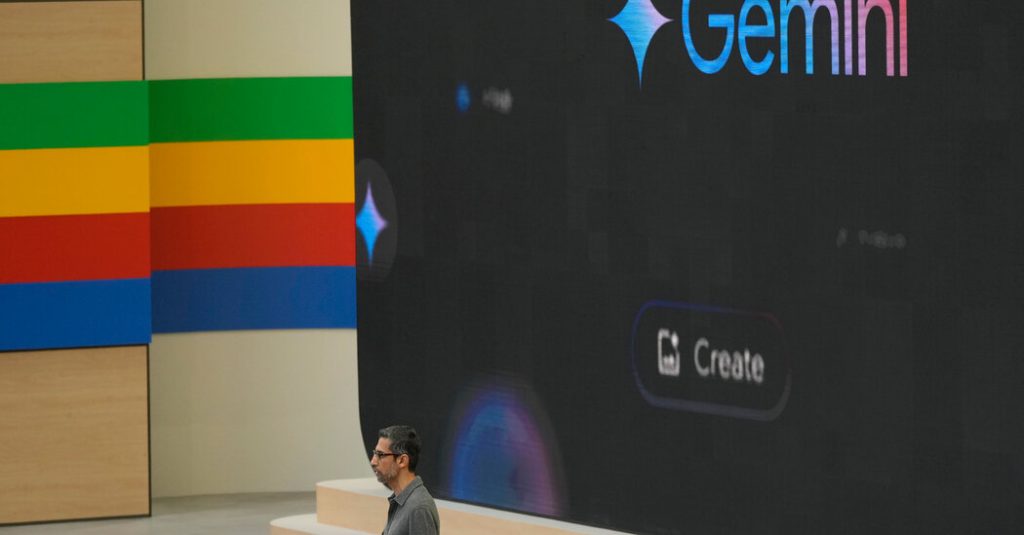Google recently introduced a new artificial intelligence feature, AI Overview, to answer complex questions and provide users with more specific information. The tool, powered by Google’s latest large language model, Gemini, combines statements generated from its models with snippets from live links across the web. While the intention was to make searching for information easier for users, the tool has faced criticism for providing incorrect and misleading answers. Examples of misinformation include recommending the use of glue in pizza recipes and ingesting rocks for nutrients, which have raised concerns about the trustworthiness of Google search results.
The launch of AI Overview is part of Google’s ongoing efforts to incorporate artificial intelligence into its popular apps and keep up with competitors like Microsoft and OpenAI. However, the company has faced challenges in taming large language models, which learn from vast amounts of data from the open web, including falsehoods and satirical content. Despite the backlash and criticisms from tech industry insiders, financial analysts believe that Google needs to move quickly to remain competitive in the rapidly evolving tech landscape, even if it means encountering growing pains along the way.
The rollout of AI Overview follows a pattern of Google experiencing issues with its latest artificial intelligence features immediately after launch. Previous releases, such as the Bard chatbot and its successor Gemini, have been met with criticism for providing incorrect information and drawing inaccurate depictions of historical figures. With each mishap, Google has faced scrutiny for its handling of AI integration, but the company maintains that the vast majority of AI Overview queries result in high-quality information, with links to further explore on the web.
The public backlash against Google’s AI Overview highlights the importance of maintaining the trustworthiness and accuracy of search engine results, as Google search is a critical source of information for billions of users worldwide. Despite the company’s efforts to refine the system based on isolated examples of problematic answers, users continue to share screenshots of misleading information on social media platforms. The incidents have raised concerns about the potential impact of AI-generated content on the reliability of search results.
Google’s AI Overview feature at the heart of this controversy aims to deliver more personalized and relevant search results to users by leveraging advanced artificial intelligence capabilities. However, the recent string of erroneous answers has sparked a debate about the reliability of AI integration in search engines and the need for increased oversight on the use of large language models. Moving forward, Google will need to address these concerns and work towards ensuring that its artificial intelligence features deliver accurate and trustworthy information to its users, maintaining the integrity of its search engine as a trusted source of information in the digital age.


